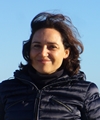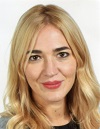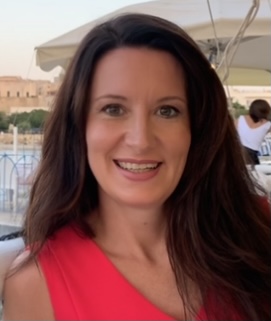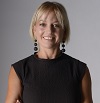Studying at the University of Verona
Here you can find information on the organisational aspects of the Programme, lecture timetables, learning activities and useful contact details for your time at the University, from enrolment to graduation.
Academic calendar
The academic calendar shows the deadlines and scheduled events that are relevant to students, teaching and technical-administrative staff of the University. Public holidays and University closures are also indicated. The academic year normally begins on 1 October each year and ends on 30 September of the following year.
Course calendar
The Academic Calendar sets out the degree programme lecture and exam timetables, as well as the relevant university closure dates..
| Period | From | To |
|---|---|---|
| Sem. 1A | Sep 26, 2022 | Nov 5, 2022 |
| Sem. 1B | Nov 14, 2022 | Dec 23, 2022 |
| Sem. 2A | Feb 13, 2023 | Mar 30, 2023 |
| Sem. 2B | Apr 11, 2023 | May 27, 2023 |
| Session | From | To |
|---|---|---|
| Sessione Invernale | Jan 9, 2023 | Feb 11, 2023 |
| Sessione Estiva | Jun 5, 2023 | Jul 22, 2023 |
| Sessione Autunnale | Aug 28, 2023 | Nov 23, 2023 |
| Sessione straordinaria invernale | Jan 8, 2024 | Feb 17, 2024 |
| Session | From | To |
|---|---|---|
| Sessione Estiva | Jul 10, 2023 | Jul 15, 2023 |
| Sessione Autunnale | Nov 6, 2023 | Nov 11, 2023 |
| Sessione invernale | Apr 2, 2024 | Apr 8, 2024 |
| Period | From | To |
|---|---|---|
| Festa di Ognissanti | Nov 1, 2022 | Nov 1, 2022 |
| Festività Della Immacolata Concezione | Dec 8, 2022 | Dec 8, 2022 |
| Vacanze natalizie | Dec 24, 2022 | Jan 8, 2023 |
| Vacanze di Pasqua | Apr 7, 2023 | Apr 10, 2023 |
| Festa della liberazione | Apr 25, 2023 | Apr 25, 2023 |
| Festa del lavoro | May 1, 2023 | May 1, 2023 |
| Festa del Santo Patrono | May 21, 2023 | May 21, 2023 |
| Festa della Repubblica | Jun 2, 2023 | Jun 2, 2023 |
| Chiusura estiva | Aug 14, 2023 | Aug 19, 2023 |
Exam calendar
Exam dates and rounds are managed by the relevant Humanistic Studies Teaching and Student Services Unit.
To view all the exam sessions available, please use the Exam dashboard on ESSE3.
If you forgot your login details or have problems logging in, please contact the relevant IT HelpDesk, or check the login details recovery web page.
Should you have any doubts or questions, please check the Enrollment FAQs
Academic staff
 tamara.bastianello@univr.it
tamara.bastianello@univr.it
 cristina.bertazzoni@univr.it
cristina.bertazzoni@univr.it
 andrea.ghidini@univr.it
andrea.ghidini@univr.it
 stefania.pontrandolfo@univr.it
stefania.pontrandolfo@univr.it
 massimo.recalcati@univr.it
massimo.recalcati@univr.it
 sorayaelizabeth.shamloo@univr.it
sorayaelizabeth.shamloo@univr.it
 marco.ubbiali@univr.it
marco.ubbiali@univr.it
Study Plan
The Study Plan includes all modules, teaching and learning activities that each student will need to undertake during their time at the University.
Please select your Study Plan based on your enrollment year.
1° Year
| Modules | Credits | TAF | SSD |
|---|
2° Year activated in the A.Y. 2023/2024
| Modules | Credits | TAF | SSD |
|---|
Indirect internship for coordination of educational services
| Modules | Credits | TAF | SSD |
|---|
| Modules | Credits | TAF | SSD |
|---|
Indirect internship for coordination of educational services
| Modules | Credits | TAF | SSD |
|---|
Legend | Type of training activity (TTA)
TAF (Type of Educational Activity) All courses and activities are classified into different types of educational activities, indicated by a letter.
Social Psychology of Groups and Organizations (2022/2023)
Teaching code
4S008176
Credits
9
Language
Italian
Scientific Disciplinary Sector (SSD)
M-PSI/05 - SOCIAL PSYCHOLOGY
The teaching is organized as follows:
Parte I
Parte II
Learning objectives
Knowledge and understanding 1. Providing students with knowledge and understanding of psychological theories that address the fundamental processes underlying the social cognition and perception in the organizational context of services 2. Providing students with knowledge and understanding of psychological theories that address individuals and group’s attitudes and behaviors in the organizational context of services. Applying knowledge and understanding 1. Applying theories on individual, group, organizational functioning to the understanding and analysis. of the functioning and adjustment of individuals to the social environment and to the organizational context within services 2. Applying theories to the understanding and development of the practitioner – service / user’s relationship. 3. Applying theories to the understanding and co-construction of social relationships with co-workers and supervisor within services.
Prerequisites and basic notions
None
Program
The course will consist of two modules, the first focused on the understanding and knowledge of intra-individual psychological processes that are involved in group processes, the second focused on group processes in educational contexts. The course will cover the following topics:
Module 1 (3 CFU; lecturer: Elena Trifiletti)
• Social cognition
• Attitudes
• Self-concept and social identity
Module 2 (6 CFU; contract lecturer)
• Reality and nature of social groups
• Group formation
• Elementary group processes
• Need of belonging and social exclusion
• Social norms and conformity
• Group decision-making
• Innovation and change in groups
• Group productivity and efficacy
• Group conflict and cooperation
• Aggressiveness and help in groups
• Intergroup conflict and social inequality
• Conflict reduction
Readings:
1. Crisp, R.J, & Turner, R.N. (2019, III Ed.). Psicologia sociale. Utet Università: Torino, chs. 2 (L’attribuzione), 3 (Cognizione sociale), 4 (Gli atteggiamenti), 7 (Il sé). It is also recommended for those who will not attend the lessons to read chapter 1 (Storia, metodi e approcci).
2. Brown, R., & Peherson, S. (2020). Group processes: Dynamics within and between groups. Hoboken, NJ: Wiley. Tutti i capitoli
3. Ellemers, N. & Haslam, S. A. (2019). La teoria dell’identità sociale, in Van Lange, P. A. M., Kruglanski, A. W., & Higgins, E. T., Psicologia sociale: Teorie sui processi psicologici, intraindividuali, interpersonali e intergruppi (pp.187-202). Traduzione italiana a cura di Pagliaro, S., Sacchi, S., & Vezzali, L.. Milano: Edra.
4. Turner, J. C. & Reynolds, K. J. (2019). La teoria della categorizzazione di sé, in Van Lange, P. A. M., Kruglanski, A. W., & Higgins, E. T., Psicologia sociale: Teorie sui processi psicologici, intraindividuali, interpersonali e intergruppi (pp. 203-216). Traduzione italiana a cura di Pagliaro, S., Sacchi, S., & Vezzali, L.. Milano: Edra.
5. Gaertner, S. L. & Dovidio, N. (2019). Il modello dell’identità dell’ingroup comune, in Van Lange, P. A. M., Kruglanski, A. W., & Higgins, E. T., Psicologia sociale: Teorie sui processi psicologici, intraindividuali, interpersonali e intergruppi (pp.217-230). Traduzione italiana a cura di Pagliaro, S., Sacchi, S., & Vezzali, L.. Milano: Edra.
6. Brewer, M. B. (2019). La teoria della distintività ottimale, in Van Lange, P. A. M., Kruglanski, A. W., & Higgins, E. T., Psicologia sociale: Teorie sui processi psicologici, intraindividuali, interpersonali e intergruppi (pp. 245-274). Traduzione italiana a cura di Pagliaro, S., Sacchi, S., & Vezzali, L.. Milano: Edra.
7. Forsyth, D. (2019). Group dynamics (7th ed.). Cengage. Capitolo 13, Conflict.
Chapters (points 1 and 3 to 7) will be available on the Moodle platform. Students who might find it difficult to study in English are invited use power points on moodle as supplementary materials.
Bibliography
Didactic methods
The topics will be addressed both through frontal teaching and in-class assignments with collective discussion aimed at developing students’ skills of group studying and analysis, as well as understanding of underlying dynamics.
Lectures will be in presence. Materials such as power points and texts of in-class assignments will be made available in moodle for students that will be unable to attend some lectures.
Learning assessment procedures
The exam will be written, and it will consist of three open-ended questions, one on the topics of the first module, two on the topics of the second module. Each question will be awarded up to 10 points/marks.
Evaluation criteria
Knowledge of theoretical constructs will be assessed, as well as the ability to understand, analyze, communicate, and interpret social and organizational behaviors in the light of the theories and concepts covered by the study program.
Criteria for the composition of the final grade
The points/marks awarded to each question will be summed up.
Exam language
Italiano
Type D and Type F activities
I 9 crediti liberi a scelta dello studente (ambito “D”) hanno lo scopo di offrire allo studente la possibilità di personalizzare il proprio percorso formativo permettendo di approfondire uno o più argomenti di particolare interesse legati al proprio percorso accademico.
Per garantire questo fine, si invitano gli studenti a rispettare le seguenti indicazioni per il completamento di tale ambito:
- almeno un’attività formativa erogata come esame universitario (con relativo voto in trentesimi);
- massimo 6 cfu relativi a competenze linguistiche (oltre a quelli previsti dal PdS);
- massimo 6 cfu relativi a competenze informatiche (oltre a quelli previsti dal PdS);
- massimo 4 cfu di tirocinio, (oltre a quelli previsti dal PdS);
- massimo 6 cfu di attività laboratoriale/esercitazioni (compresi quelli previsti nei PdS per l’ambito) di regola viene riconosciuto 1 cfu ogni 25 ore di attività;
- massimo 6 cfu di attività seminariale/convegni/cicli di incontri/formative in genere (sia accreditata dal Dipartimento di Scienze Umane che extrauniversitaria) – di regola viene riconosciuto 1 cfu ogni 8 ore di partecipazione e/o 2 giornate salvo diversamente deliberato;
- non vengono valutate attività svolte in Erasmus non inserite nei Learning Agreement.
Altre informazioni sono reperibili nella Guida per i crediti liberi che è possibile trovare quì.
COMPETENZE TRASVERSALI
Scopri i percorsi formativi promossi dal Teaching and learning centre dell'Ateneo, destinati agli studenti iscritti ai corsi di laurea, volti alla promozione delle competenze trasversali:
https://talc.univr.it/it/competenze-trasversali
| years | Modules | TAF | Teacher |
|---|---|---|---|
| 1° 2° | Il teatro dell'oppresso | D |
Paola Dusi
(Coordinator)
|
| 1° 2° | Le 16 attitudini per una vita felice | D |
Paola Dusi
(Coordinator)
|
| 1° 2° | Movement medicine | D |
Paola Dusi
(Coordinator)
|
| 1° 2° | Summer school: human sciences and society - (HSAS) – 2022/2023 | D |
Federica De Cordova
(Coordinator)
|
| years | Modules | TAF | Teacher |
|---|---|---|---|
| 1° 2° | Laboratory of behavioral observation techniques | D |
Marinella Majorano
(Coordinator)
|
| years | Modules | TAF | Teacher |
|---|---|---|---|
| 1° 2° | Body and Disability – Laboratory | D |
Michele Scandola
(Coordinator)
|
| 1° 2° | Laboratorio di painting dialogue | D |
Paola Dusi
(Coordinator)
|
| 1° 2° | Group Psychology and evaluation of educational intervention | D |
Anna Maria Meneghini
(Coordinator)
|
| 1° 2° | Le 16 attitudini per una vita felice (ed. 2023) | D |
Paola Dusi
(Coordinator)
|
| 1° 2° | OMeGA - Horizons, Models and Assisted Parenting | D |
Alessandra Cordiano
(Coordinator)
|
| 1° 2° | Tai-Ti aiuto io | D |
Alessandra Cordiano
(Coordinator)
|
| 1° 2° | Se le api sono poche-pedagogia del movimento (ed. 2023) | D |
Rosanna Cima
(Coordinator)
|
| years | Modules | TAF | Teacher |
|---|---|---|---|
| 1° 2° | Il teatro dell'oppresso (ed. 2023) | D |
Paola Dusi
(Coordinator)
|
| 1° 2° | Movement medicine (ed. 2023) | D |
Paola Dusi
(Coordinator)
|
| 1° 2° | OMeGA - Horizons, Models and Assisted Parenting | D |
Alessandra Cordiano
(Coordinator)
|
| 1° 2° | Tai-Ti aiuto io | D |
Alessandra Cordiano
(Coordinator)
|
Career prospects
Module/Programme news
News for students
There you will find information, resources and services useful during your time at the University (Student’s exam record, your study plan on ESSE3, Distance Learning courses, university email account, office forms, administrative procedures, etc.). You can log into MyUnivr with your GIA login details: only in this way will you be able to receive notification of all the notices from your teachers and your secretariat via email and soon also via the Univr app.
Student mentoring
Graduation
Documents
| Title | Info File |
|---|---|
|
|
pdf, it, 99 KB, 13/10/23 |
|
|
pdf, it, 101 KB, 10/04/24 |
List of theses and work experience proposals
| theses proposals | Research area |
|---|---|
| Psicoanalisi | Psychology - Psychology, Psychoanalysis |
Gestione carriere
Linguistic training CLA
Practical information for students
Documents
| Title | Info File |
|---|---|
|
|
pdf, it, 325 KB, 02/05/23 |
|
|
pdf, it, 212 KB, 02/05/23 |
|
|
pdf, it, 131 KB, 02/05/23 |
Stage e Tirocini
Per le altre attività formative (crediti F) sono previsti 9 cfu (pari a 225 ore) da acquisire solamente attraverso l’attività di tirocinio obbligatoria, a sua volta suddivisa in:
- tirocinio indiretto (1 cfu: 25 ore di frequenza obbligatoria in università per il 75%) in preparazione dell’attività formativa sul campo;
- tirocinio diretto (8 cfu), da svolgersi presso enti convenzionati.
L’ordinamento didattico della LM in Scienze pedagogiche prevede che il tirocinio indiretto a frequenza obbligatoria si svolga in università per il 75% nel secondo anno (1 CFU: 25 ore).
Il tirocinio indiretto consiste in un accompagnamento iniziale delle/degli studenti da parte dei tutor attraverso un percorso di formazione della durata di 25 ore.
La finalità di questo percorso è quella di preparare le/gli studenti alla particolare forma di apprendimento costituita dal tirocinio, dotandoli di conoscenze e strumenti adeguati a osservare, comprendere e rielaborare criticamente l’esperienza di tirocinio nei servizi educativi e ad affrontare il tirocinio negli enti con metodo e consapevolezza.
Il percorso, da attuare in gruppi da 20-25 persone sotto la supervisione di un tutor proveniente dal mondo professionale di educatori e pedagogisti, risponde alle esigenze costantemente espresse sia dalle/dagli studenti stessi sia dalle parti sociali che dai referenti degli enti convenzionati.
Nuove Linee Guida per il tirocinio di Scienze pedagogiche.
- Tutte le informazioni in merito agli stage per futuri studenti sono disponibili alla pagina Stage e tirocini.
- Tutte le informazioni in merito agli stage per studenti iscritti sono pubblicate in MyUnivr - come fare per - stage e tirocini.
- Tutte le informazioni in merito agli stage per le aziende sono disponili alla pagina Stage e tirocini per azienze.
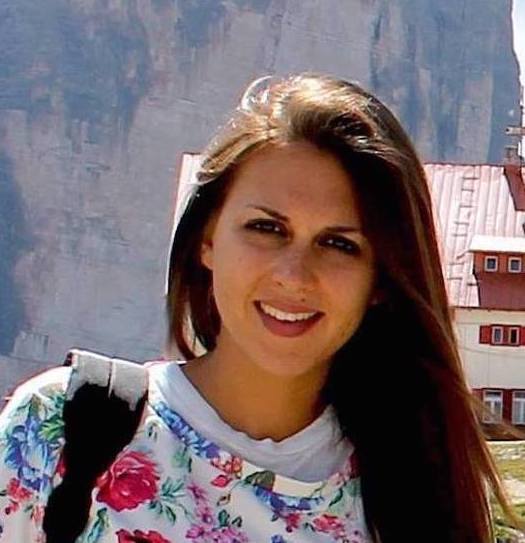


 045 802-8183
045 802-8183





